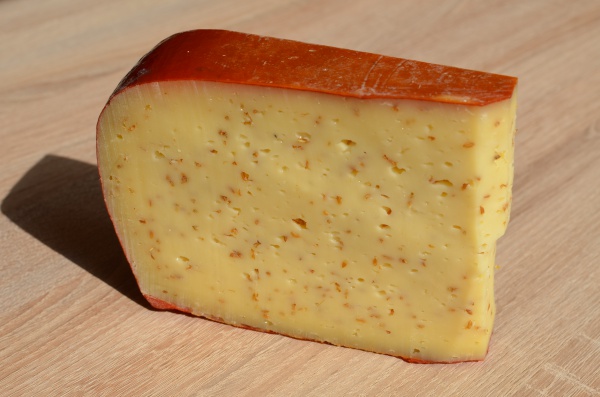Facts About Leyden cheese
Leyden cheese, or "Leidse kaas" in Dutch, is a delightful semi-hard cheese originating from the Netherlands, renowned for its distinctive flavor imparted by cumin and caraway seeds. Made primarily from cow's milk, it is produced both in factories and on farms, especially in the Leiden area. This cheese is a popular variety of "komijnekaas" which prominently features cumin as a key ingredient.
Leyden cheese has a unique shape—round and flat, similar to Gouda, but with sharper edges on one side. It typically has a fat content ranging from 30% to 40% and can weigh anywhere from 3 kg (6.6 lb) to 9 kg (20 lb).
The cheese-making process is quite intricate. On farms, about 5% buttermilk is added to the milk. The mixture is then set with rennet at a specific temperature, cut into curds, stirred, and mixed with cumin seeds. The curd is then layered into cloth-lined hoops, pressed, salted, and finally cured in a cool, moist cellar. The traditional version, known as "Boeren-Leidse met sleutels" holds a Protected Designation of Origin status. The term "met sleutels" (with keys) refers to the coat of arms of Leiden, which features a set of keys.
Historically, farms in the Netherlands focused on producing butter for local markets, which left them with semi-skimmed milk as a byproduct. This milk was perfect for making a low-fat cheese that could be preserved better than full-cream cheeses like Gouda, especially in warmer temperatures. Farmers in Leiden began adding cumin seeds and used annatto for coloring, giving the cheese its distinctive red hue.
Leyden cheese typically contains 40.6% moisture, 13.5% fat, and 37.3% protein. It's a unique and flavorful cheese with a rich history and traditional production methods, making it a true gem of Dutch cuisine.

 Belgium
Belgium